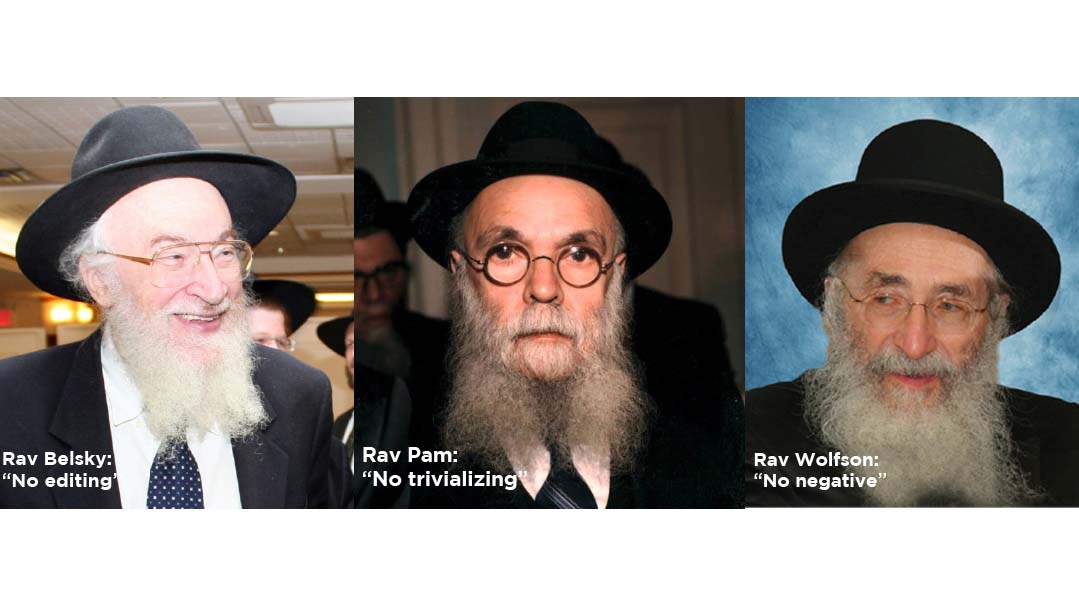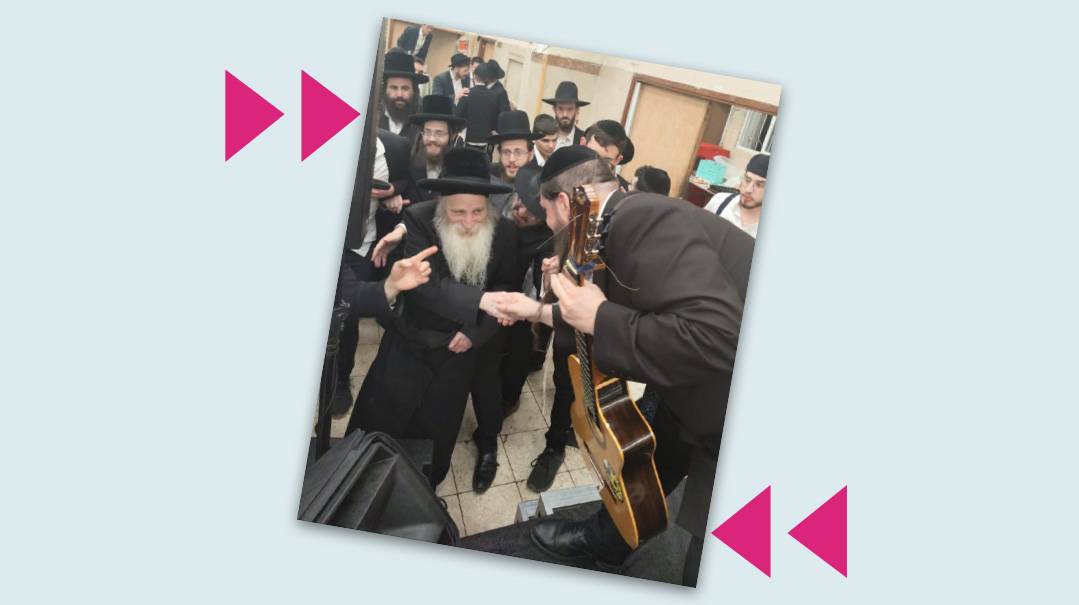For a Higher Purpose
| September 9, 2021An unforgettable lesson about the seriousness of Jewish music and what its ultimate purpose is

RAV YISROEL BELSKY ztz”l was a man of many talents, music among them. He was rosh yeshivah of Torah Vodaath, a kashrus consultant for the OU, and a world-renowned posek. Yet it was his composition for the zemer “Shimru Shabsosai” (on Camp Sdei Chemed’s Around the Shabbos Table 2, and recorded by A-Team Levi Falkowitz and Shirah Choir) that he sang every Shabbos, expressing his soul’s appreciation for the rare gift of the day. Rav Belsky, who passed away in 2016, served as JEP’s rabbinical advisor from the project’s outset in the 1970s, paskening on sh’eilos related to the JEP albums that were released back then.
Rabbi Yosef Chaim Golding, cofounder of JEP, recalls that once, a question arose regarding fitting words of a pasuk into a tune. “Rabbi Belsky was adamant that we not ‘edit’ any pasuk by omitting or doubling a word,” he says. “We had a lot more flexibility when it came to choral harmony, though.”
The JEP concept of inserting inspiring English lyrics into existing Jewish songs was generally successful, but occasionally the directors wanted to include Hebrew songs too.
“While preparing the very first JEP record, Reach Out, Torah Vodaath Mashgiach RAV MOSHE WOLFSON wanted to make sure the songs featured positive, rather than negative or critical lyrics, and on the song ‘Hashem Hu Elokeinu,’ he changed the words ‘U’vshilton kakofrim ain anu ma’aminim — we do not believe in the heretical regime” to “U’vshilton yeshorim kain anu ma’aminim — we do believe in the leadership of the righteous.”
Rav Wolfson himself was no stranger to niggun. In fact, he wrote the words for the lively Modzhitzer niggun “V’hayah B’achris Hayamim/One Day When Mashiach Will Come” (JEP Volume 3, 1977), which was popular in Camp Torah Vodaath.
Rabbi Golding says that his rebbi, Rav Avraham Pam ztz”l, taught an unforgettable lesson about the seriousness of Jewish music and what its ultimate purpose is. “When my chavrusa, Moshe Hauben, and I learned the Gemara in Maseches Sanhedrin: ‘One who recites a pasuk of Shir Hashirim and turns it into a type of song, or one who recites a pasuk at a banquet hall at an inappropriate time, brings misfortune to the world because the Torah puts on sackcloth and stands before Hakadosh Baruch Hu and says, ‘Ribbono shel Olam, Your children have made me like a lute that scoffers play,’ I asked Rav Pam if this refers specifically to Shir Hashirim because it already is a song? He smiled and said, “No. I’m afraid you are learning the wrong pshat. If Shir Hashirim, which already is a song, cannot be made into a song, certainly one may not do so with any other pasuk in Tanach.”
“But Rebbe, what about all of our Jewish songs, records, and tapes?
Rabbi Pam answered, “If for a JEP gathering you bring a group of non-religious children together and you want to bring them close to Hashem, then the song is wonderful. If you are leading Pirchei children and you want to ignite their hearts to bring them closer to Torah, wonderful. But if you take a guitar on stage and sing pesukim merely to entertain the audience, then the Torah dons sackcloth and complains to Hashem, and this brings misfortune to the world.”
(Originally featured in Mishpacha, Issue 877)
Oops! We could not locate your form.






